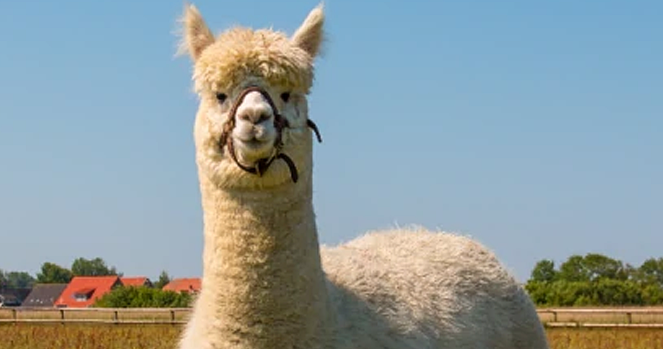How to Feed Alpacas Based on Life Stage Needs
A balanced diet is important no matter what life stage or goals you have for your alpacas – whether they’re producing fleece for sale, competing at shows or simply providing companionship for your family.
“Good nutrition is essential for alpaca health and quality fiber production,” says Mazuri Ph.D. and alpaca researcher Dr. Jen Parsons, who recently helped test and reformulate Mazuri® alpaca feeds based on the animals’ unique needs at different life stages.
Leading alpaca specialist Dr. Norm Evans, DVM, and four U.S. alpaca farms helped the Mazuri team with the research. Their goal was to study blood nutrient levels and body condition to determine how best to adjust Mazuri® alpaca feeds.
Mazuri introduced its reformulated diets in early 2020. Now, alpaca farmers can quickly and confidently choose feeds with the proper nutrient balance for animals at all life stages:
Growing and adult alpacas
For growing crias and adult alpacas that are not raised for fiber production, choose a multipurpose feed with lower protein levels and the right balance of nutrients to help with key growth and developmental stages, Parsons advises.
“Offer high-quality, free-choice hay or pasture with their feed,” Parsons says. “Always analyze your hay or pasture to determine possible nutrient deficiencies. If it’s low in certain minerals or vitamins, you can choose a feed with added amounts of that nutrient.”
Mazuri® Alpaca Care feed was designed to support alpaca health at any stage of life and is available in pelleted or crumble form. It has more moderate protein than previous diets and improved dietary fiber and sodium levels to help with hydration. It also contains added flaxseed to help with immune and heart health.
Senior alpacas
“Many alpaca farms have that one older female alpaca that makes good fiber, helps keep the herd calm, but tends to lose weight and get skinnier each winter,” Parsons says.
If you have senior alpacas or alpacas in need of weight management, look for a great-tasting feed with higher energy levels. Is your farm located in a northern climate? All alpacas, regardless of age, may require extra energy to help them deal with cold temperatures and heavy snowfall.
Another feeding concern for older animals is choking or regurgitation. Choose crumbles or smaller-sized pellets that are easier for older animals to chew.
Mazuri® Alpaca Complete Life feed supports senior alpacas and alpacas with weight management needs. It has beet pulp and molasses to make it taste great and tempt picky eaters. Plus, added probiotics help support gastrointestinal and immune health. This feed is made in a smaller pellet size to make it easier to chew.
Breeding and birthing season
For growing and reproducing alpacas, choose feed that provides higher energy, nutrients to support reproduction function and fiber to aid digestive health, Parsons said. Look for feed labels with added selenium and vitamin E—antioxidants that support reproduction and other essential body systems. Calcium and phosphorous also are needed to support successful breeding.
“Gestating and lactating female alpacas expend a lot of energy feeding their cria, so choose a nutrient-dense feed to keep their energy levels strong,” Parsons says.
Mazuri® Alpaca Complete Life feed contains all the minerals, vitamins and additives to support health and performance for breeding, gestating and lactating alpacas, including probiotics for gastrointestinal and immune health, and antioxidants for overall health and performance.
Fleece-producing and show animals
If you’re raising alpacas for fiber production or show competitions, choose a premium feed designed for fiber-producing animals. “Even if you start with great genetics, high-quality fleece cannot flourish without excellent nutrition,” Parsons says.
The gestation length of an alpaca is about 11 months. While a cria is developing, fibers appear in follicles between 200 and 210 days of gestation. Feeding a premium feed in the final 120 days of pregnancy will maximize genetic potential and fleece quality, advises Parsons.
Mazuri® Alpaca Performance feed has the highest flaxseed levels of any Mazuri® alpaca product. Flaxseed is high in omega-3 fatty acids, which can help with immune and heart health, and gives alpaca fleece more “luster.” Luster is the sheen, shine or glow of fleece and is one of the traits that makes alpaca fleece so desirable. Flaxseed also supports hair fiber development.
Mazuri® Performance feed also contains probiotics to support gastrointestinal health and antioxidants to support performance.
Have a question about alpaca feed or nutrition needs? Ask a Mazuri expert.
Suggested Articles:
Related Products:
